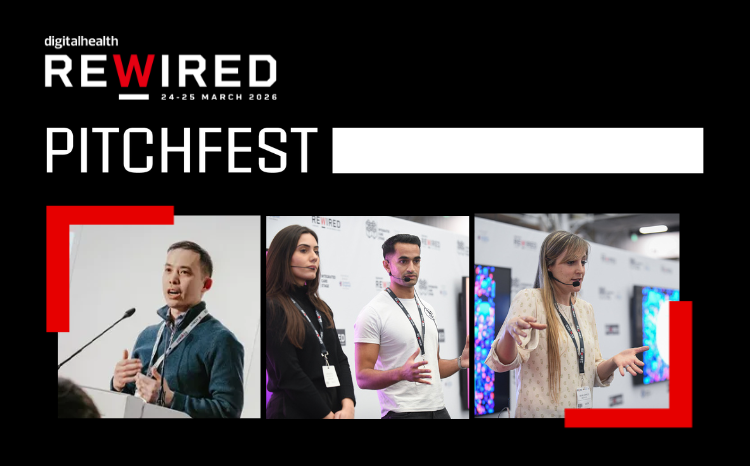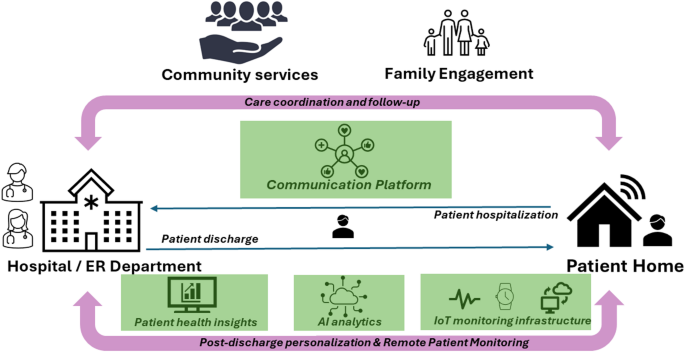GOSH will harness AI to improve care for children, says CDIO

Mark Coker, chief digital information officer at Great Ormond Street Hospital for Children NHS Foundation Trust (Credit: Mark Coker)
Great Ormond Street Hospital for Children NHS Foundation Trust (GOSH) is “embedding AI into clinical care, operations and research”, said Mark Coker, chief digital information officer.
The trust’s AI strategy, written by Coker and Andrew Taylor, director of innovation at GOSH, aims to drive the development of real-world AI solutions to improve patient outcomes over the next three years.
It includes using AI to manage operating room schedules, create predictive models for ICU demand and bed occupancy, provide summaries of care ahead of clinic visits and ward rounds, and suggest responses to messages from patients.
Coker told Digital Health News: “This is a pivotal moment in time for digital innovation.
“With big national ambitions for the NHS to shift from analogue to digital, we must make sure that we are ready and ensure that care for children and young people is not left behind.
“Our AI strategy vision is to deliver real-world AI solutions that improve patient outcomes, our corporate functions and the working lives of our staff in a safe and sustainable way.
We must ensure that care for children and young people is not left behind
“We have a legacy of leading cutting-edge, world first research with our partners and as a digitally mature, intelligent research hospital, we are committed to harnessing the power of our data to help save and transform lives.”
The trust’s Data Research, Innovation and Virtual Environments Unit provides a hub for digital innovation, where data science and analytics experts are developing in-house AI solutions such as natural language processing and imaging techniques.
“Our in-house expertise combined with clinical and operational staff engagement are key in developing and implementing AI-driven solutions that enhance patient care and operational efficiency,” Coker said.
The AI strategy has been developed through dialogue with key stakeholders including staff, children and young people’s representatives and non-executive directors.
It is underpinned by three priorities: enhancing clinical decision-making and care with AI, streamlining operations and enhancing efficiency, and optimising non-clinical workflows.
Safe and ethical use of AI
Coker said that while the strategy reflects an understanding of the potential benefits of AI, it also “acknowledges the concerns around its ethical and responsible delivery”.
In the first year, the trust will focus on establishing the monitoring and reporting structures for its AI strategy.
“Safety, ethics and governance are core to this strategy and the first year will focus on establishing good foundations,” Coker explained.
GOSH will follow the UK government’s AI Playbook, to ensure that AI is used lawfully, ethically and responsibly, with human oversight and full lifecycle management.
Clinicians will retain decision-making authority and an AI ethics committee will oversee ethical concerns. Also, all devices will “undergo rigorous testing” to meet safety and efficacy standards.
The second phase, between years one and three, will focus on scaling and optimising AI use across hospital operations, with the ultimate goal of achieving full integration of AI and taking a leadership role in the field.
“Implementing AI-driven solutions will enable GOSH to increase the degree of personalised treatment we are able to provide, enhance clinical decision making and improve resource management.
“AI can also optimise hospital operations through AI-driven scheduling, resource planning, and cost efficiency, ensuring that our resources are used effectively,” Coker said.
Educating and upskilling the workforce in the ethical use of AI is vital to the plan, with the chief nursing information officer and team of nursing and allied health professional (AHP) information officers helping to ensure that innovation meets staff needs.
The strategy includes webinars, hands-on workshops, technical training sessions and live demos to create “a fully AI literate workforce that understands how AI works, when to trust it, and when to challenge it”.
GOSH will also roll-out ambient scribing technology from TORTUS this autumn, after leading a London-wide NHS trial which found “transformative” benefits for patients and clinicians.
“By streamlining administrative tasks, AI drives efficiencies and productivity gains, allowing clinicians to focus more on patient care,” Coker said.
link






